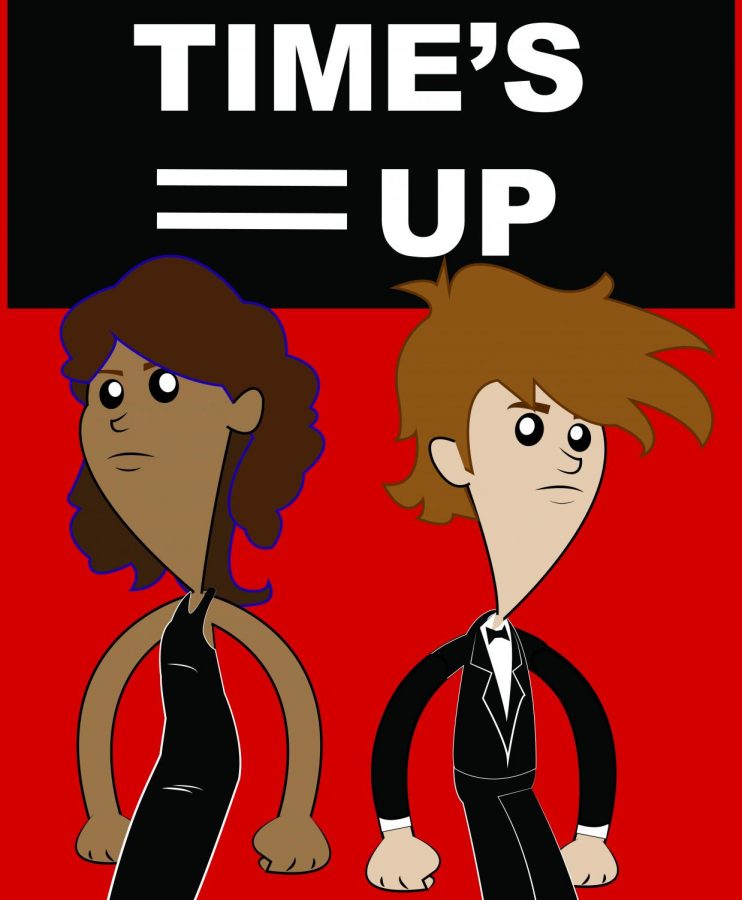“Time’s Up” for sexual harassment in Hollywood
January 29, 2018
The Golden Globe Awards ceremony is always a big deal for Hollywood. However, this year, the show was more than just recognition of great films and actors.
The show took place Jan. 7, where some attending actors and actresses dressed in black to show support for the Time’s Up movement.
This resulted from powerful people in the film industry, such as producer Harvey Weinstein and actor Kevin Spacey, receiving worldwide exposure for alleged sexual harassment claims.
Time’s Up, in conjunction with the #MeToo movement, is out to eradicate the presence of sexual harassment and misconduct throughout the film industry and beyond.
During the awards, winners, such as actresses Elisabeth Moss, Nicole Kidman and Laura Dern, dedicated their speech to the empowerment of women and spoke of how women’s roles are irreplaceable in the industry.
Title IX Coordinator Tammy Jacques said the women who spoke up at the Golden Globes are strong and courageous.
“They were able to use the Golden Globes as a platform to send a clear message that individuals must stop using their power and positions to sexually harass and abuse others,” Jacques said.
Many celebrities and critics called media icon Oprah Winfrey’s Cecil B. deMill Award acceptance speech the most memorable moment of the ceremony.
“For too long, women have not been heard or believed if they dare speak the truth to the power of those men,” she said.” But, their time is up.”
Some stars also brought humanitarians and activists with them on the red carpet in recognition of their societal works, with #MeToo founder Tarana Burke accompanying actress Michelle Williams.
The movement began in Nov. 2017 when national women farmworkers organization Alianza Nacional de Campesinas (“National Alliance of Peasants”) sent a letter of solidarity to Hollywood actresses involved in bringing Weinstein’s allegations to light.
After receiving attention from publication in Time Magazine, hundreds of women in the entertainment industry signed a letter of support in response, effectively starting the movement.
The New York Times announced the movement Jan. 1, citing both the letter and a desire to support not only women, but also men, the LGBT community and people of color with less funds and media access to let their voices be heard out harassment.
The movement’s founding brought on several initiatives, including the call for wearing black at the Golden Globes, a $13 million fund for legal defense in support of lower-income women seeking justice for workplace harassment and a movement toward gender parity in talent and studio agencies.
“The Time’s Up movement is an important step toward having absolute safety for women and men in the workplace in Hollywood,” said sophomore Thaddaeus Scruggs. “No one should have to live in fear of sexual assault or the fear of being blacklisted if they speak out because the accuser is a person of renowned contributions to society.”
Jacques said despite the influence the movements have had, there is still more work to be done.
“My hope is that the education initiatives that we’ve implemented here at UNA will help our students be a part of the solution, and not a part of the problem, when they continue into the work force after graduation,” she said.
For those interested in donating to the movement, visit timesupnow.com.


